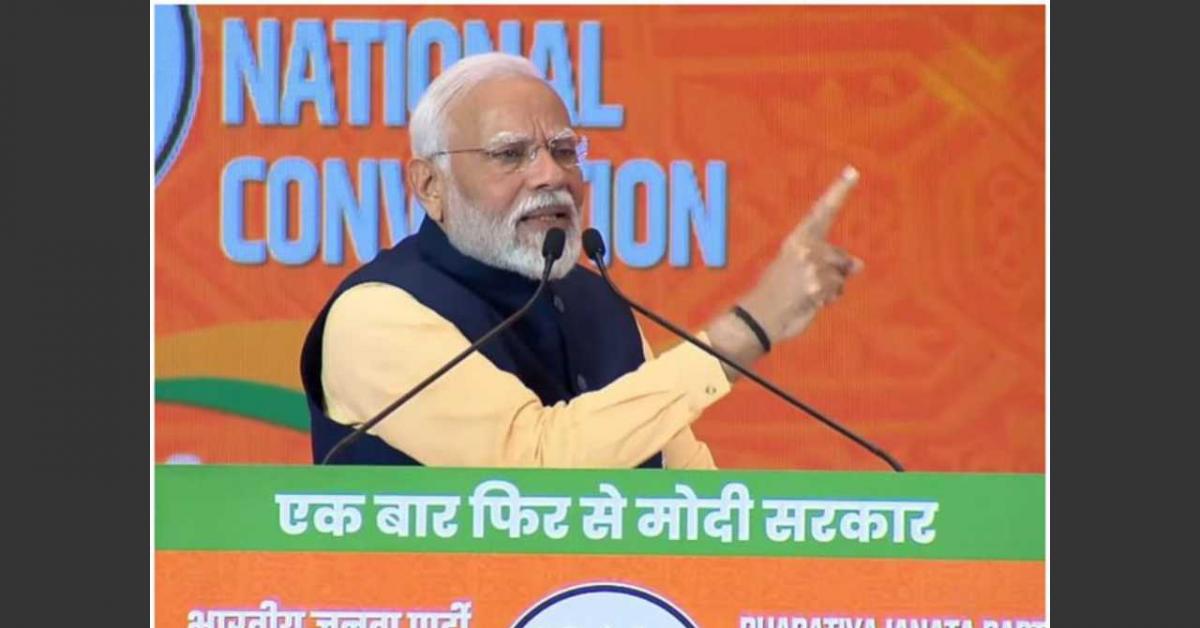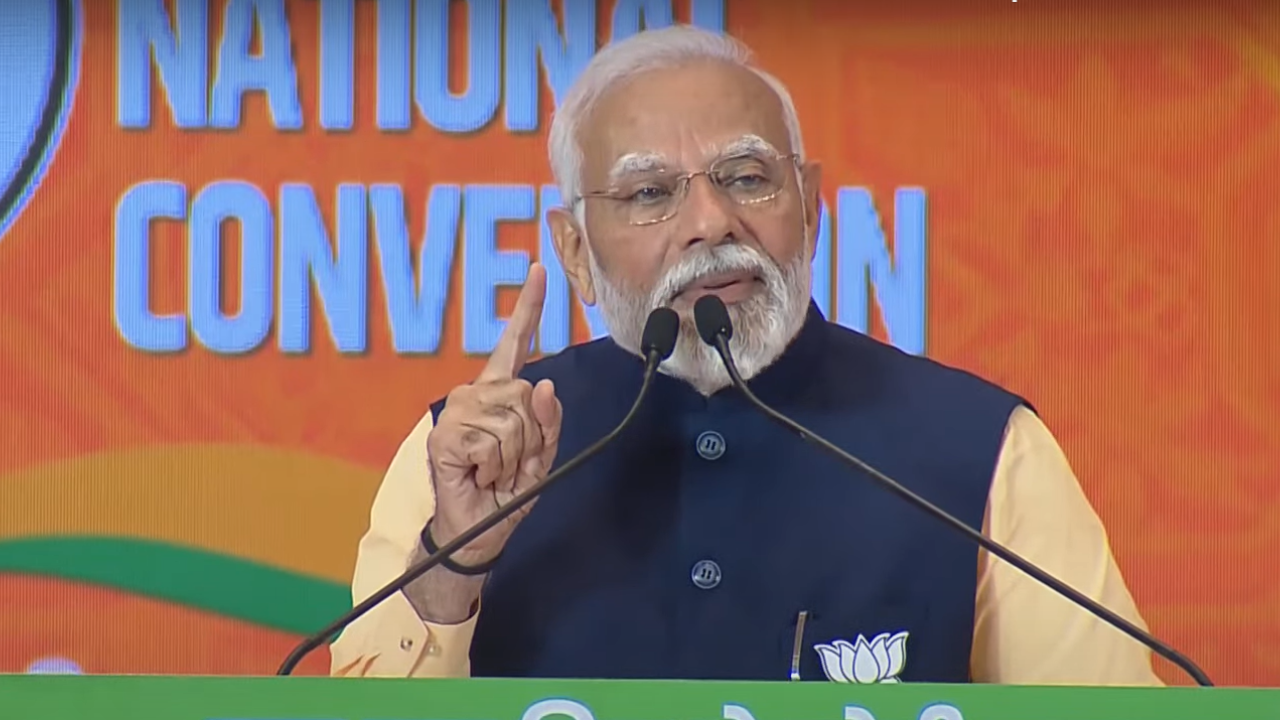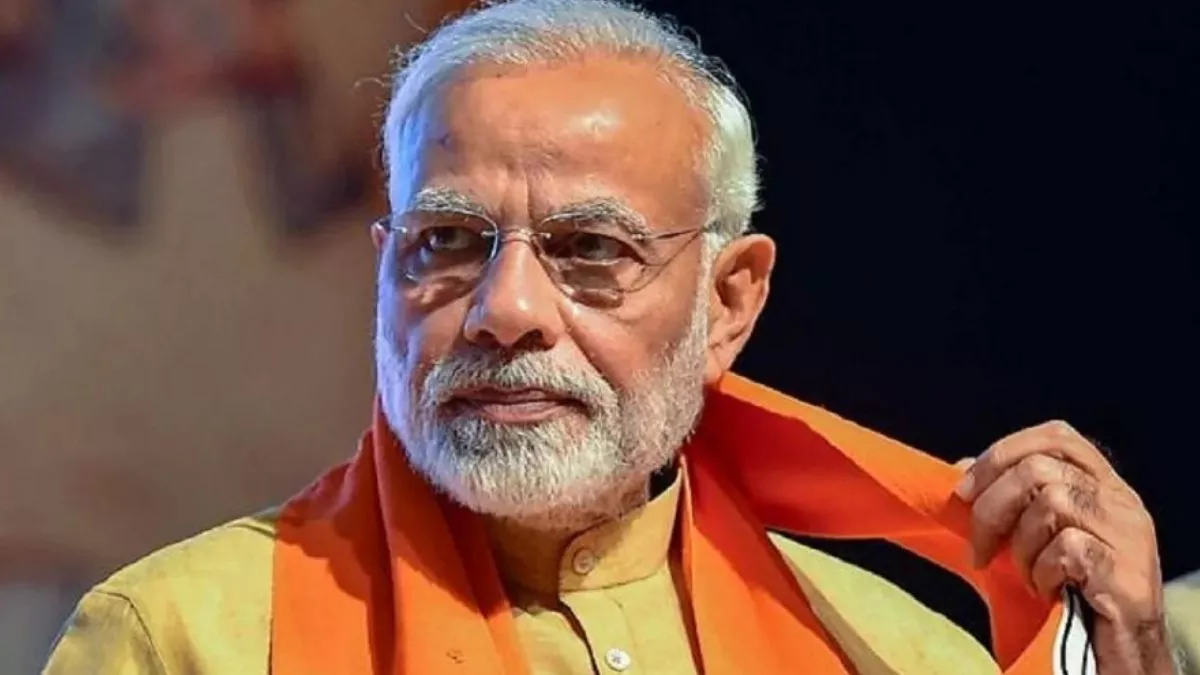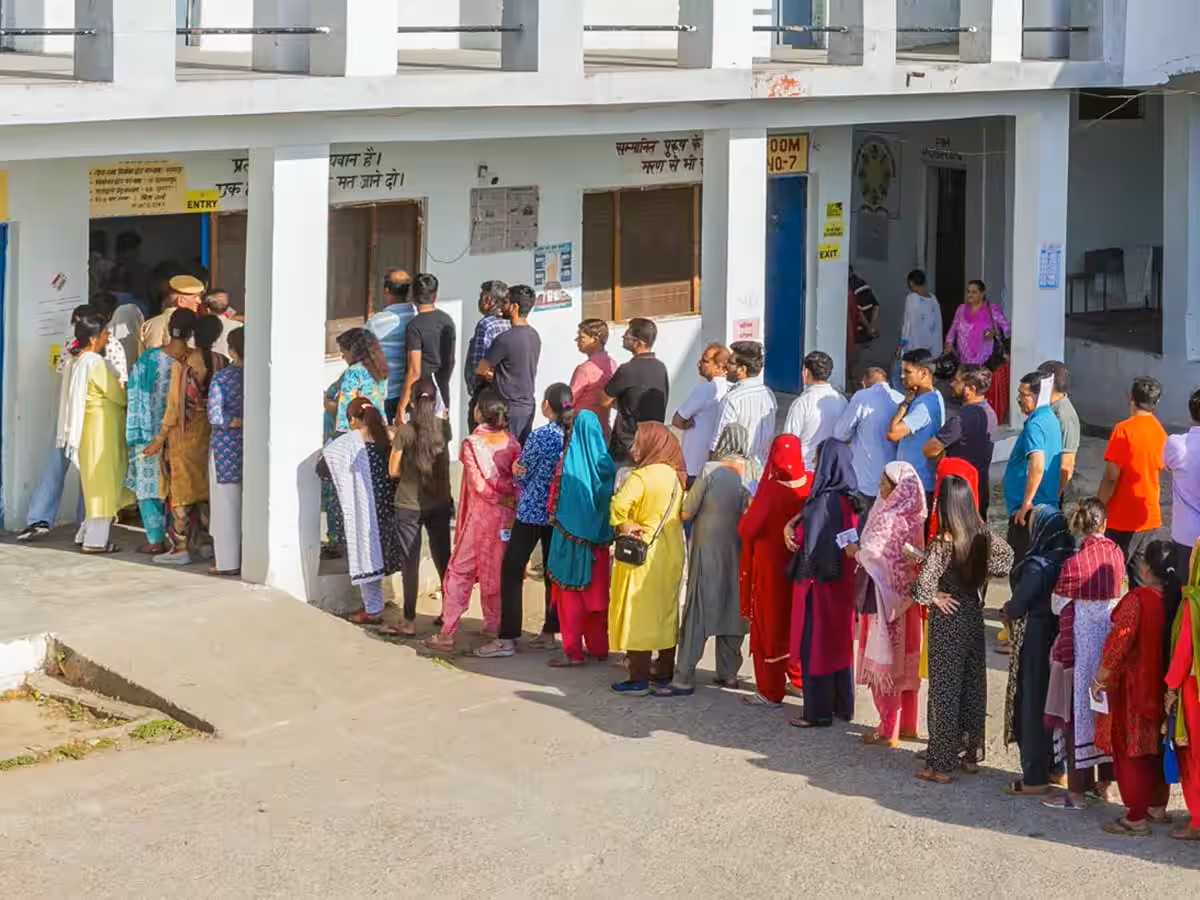Prime Minister Narendra Modi’s address at the BJP national convention was a meticulously crafted political message designed to resonate with both his passionate supporters and potential fence-sitters. While undoubtedly galvanizing party workers for the upcoming Lok Sabha elections, the speech presented a complex tapestry woven with threads of aspirational pronouncements, veiled warnings, and subtle digs at opponents. Unravelling this tapestry requires us to move beyond immediate impressions and delve into the underlying narratives, promises, and potential challenges.
 The call for intensified engagement in the next 100 days underscores the crucial nature of the looming elections. Modi’s confident projection of his potential re-election, however, needs to be viewed against the backdrop of independent polls and public sentiment closer to the voting date. The ability to bridge potential fault lines within Indian society and garner trust across diverse communities will be a critical test for the BJP.
The call for intensified engagement in the next 100 days underscores the crucial nature of the looming elections. Modi’s confident projection of his potential re-election, however, needs to be viewed against the backdrop of independent polls and public sentiment closer to the voting date. The ability to bridge potential fault lines within Indian society and garner trust across diverse communities will be a critical test for the BJP.
The aspiration to transform India into a developed nation by 2047 paints a compelling picture. However, achieving this ambitious goal demands more than mere pronouncements. Concrete plans encompassing economic growth, infrastructure development, and human capital advancement are essential. Here, it becomes crucial to move beyond political statements and examine independent benchmarks, economic data, infrastructure progress, and advancements in education and healthcare. A critical analysis allows us to assess the feasibility of these aspirations and hold the government accountable for delivering on its promises.
Claims of tackling corruption, elevating living standards, and alleviating poverty necessitate a deeper dive into the lived experiences of different social groups. Evaluating poverty line statistics, corruption indices, and the effectiveness of social welfare programs paint a more nuanced picture beyond political narratives. Moreover, acknowledging the potential for unintended consequences of major decisions such as the Ram temple construction and Article 370 abrogation is crucial for understanding their societal impact. A balanced approach involves looking beyond self-congratulatory speeches and engaging with independent analyses, expert opinions, and grassroots perspectives to assess the true impact of these policies on various societal segments.
Modi’s image as a leader devoted to the underprivileged is undoubtedly powerful, but it’s vital to go beyond individual narratives. Examining concrete policy outcomes and their impact on various social groups provides a more objective perspective. Similarly, claims of courageous decision-making necessitate analysis beyond self-proclaimed narratives. Evaluating the effectiveness and potential unintended consequences of these decisions, such as the long-term societal and economic implications, is paramount for a comprehensive understanding.



